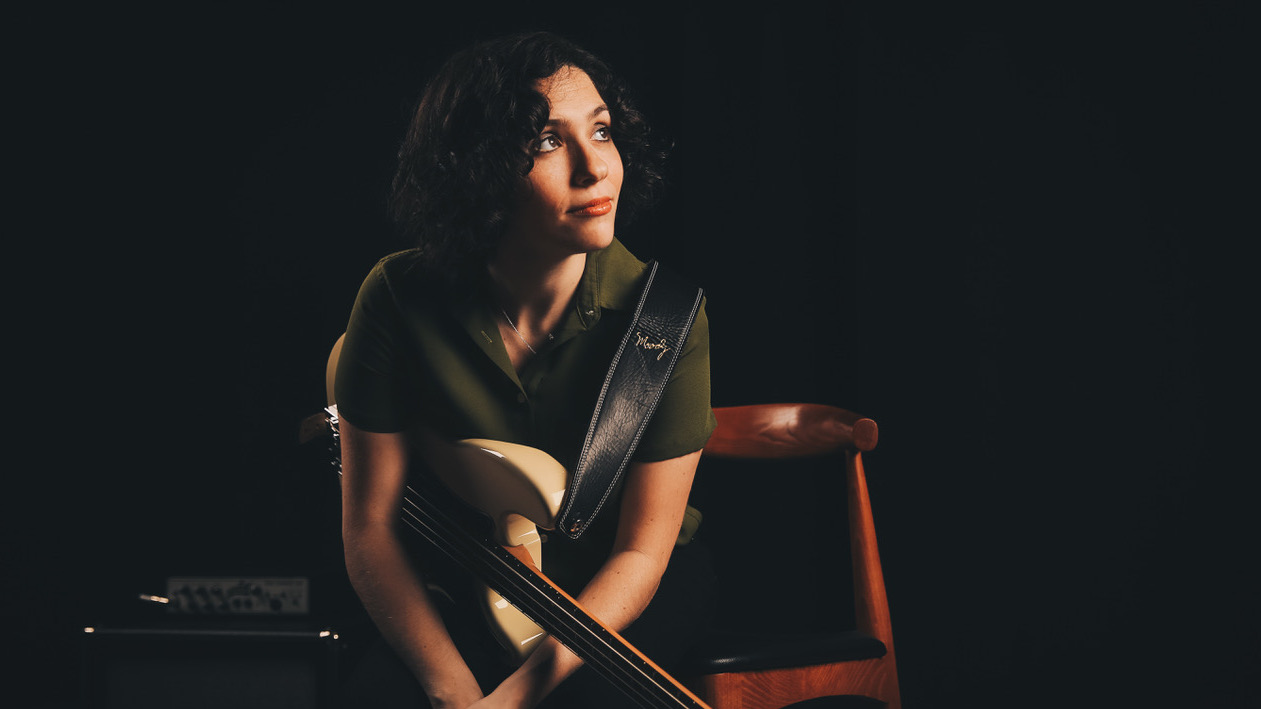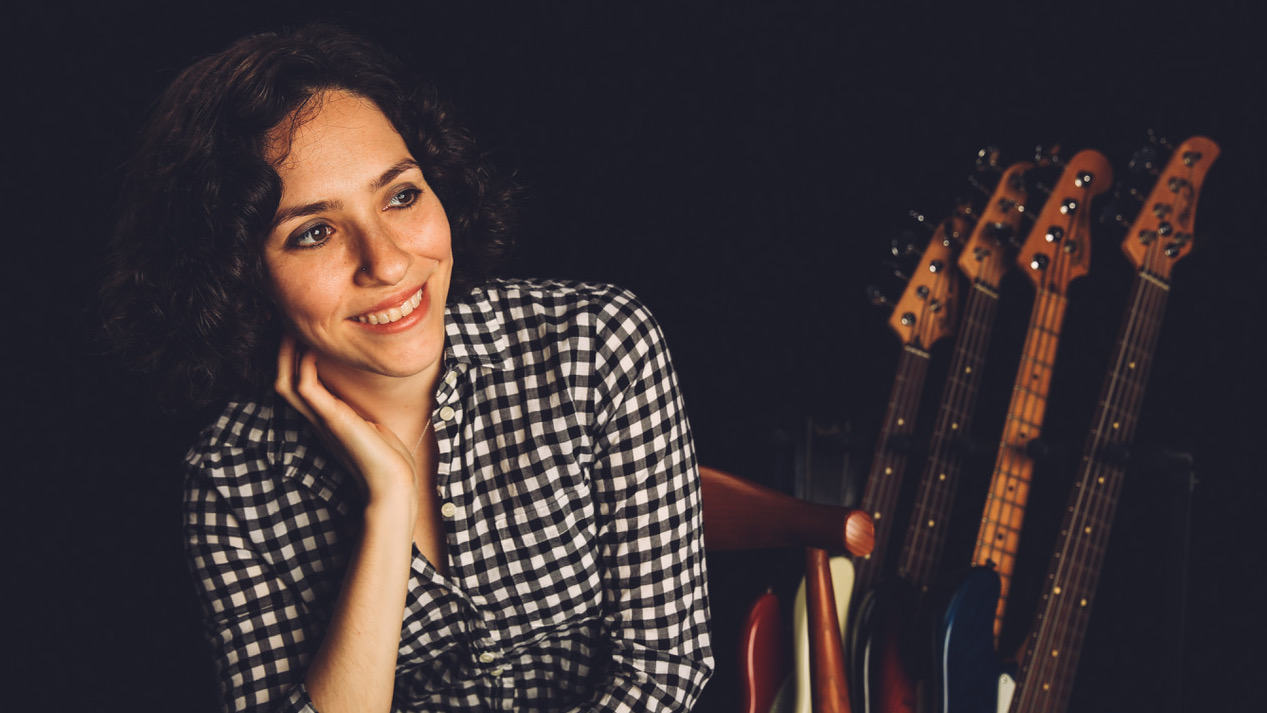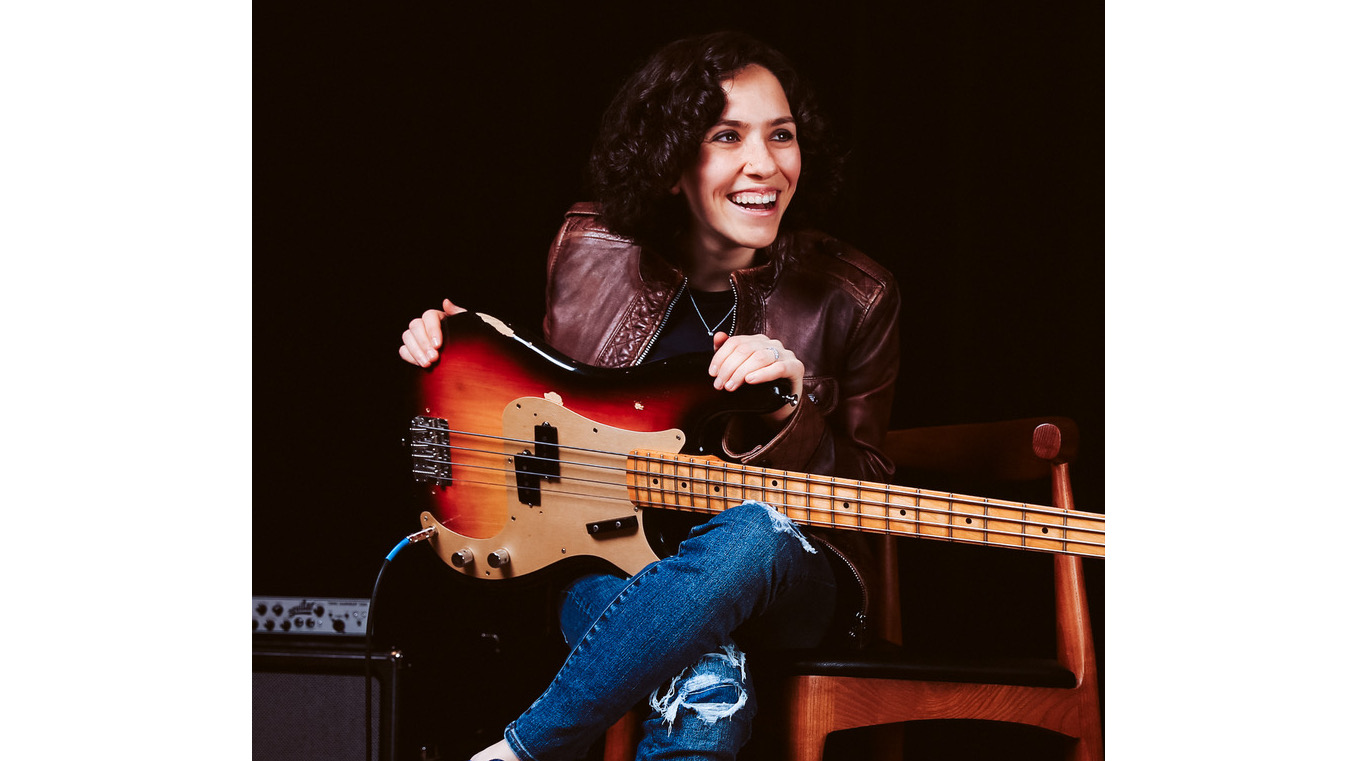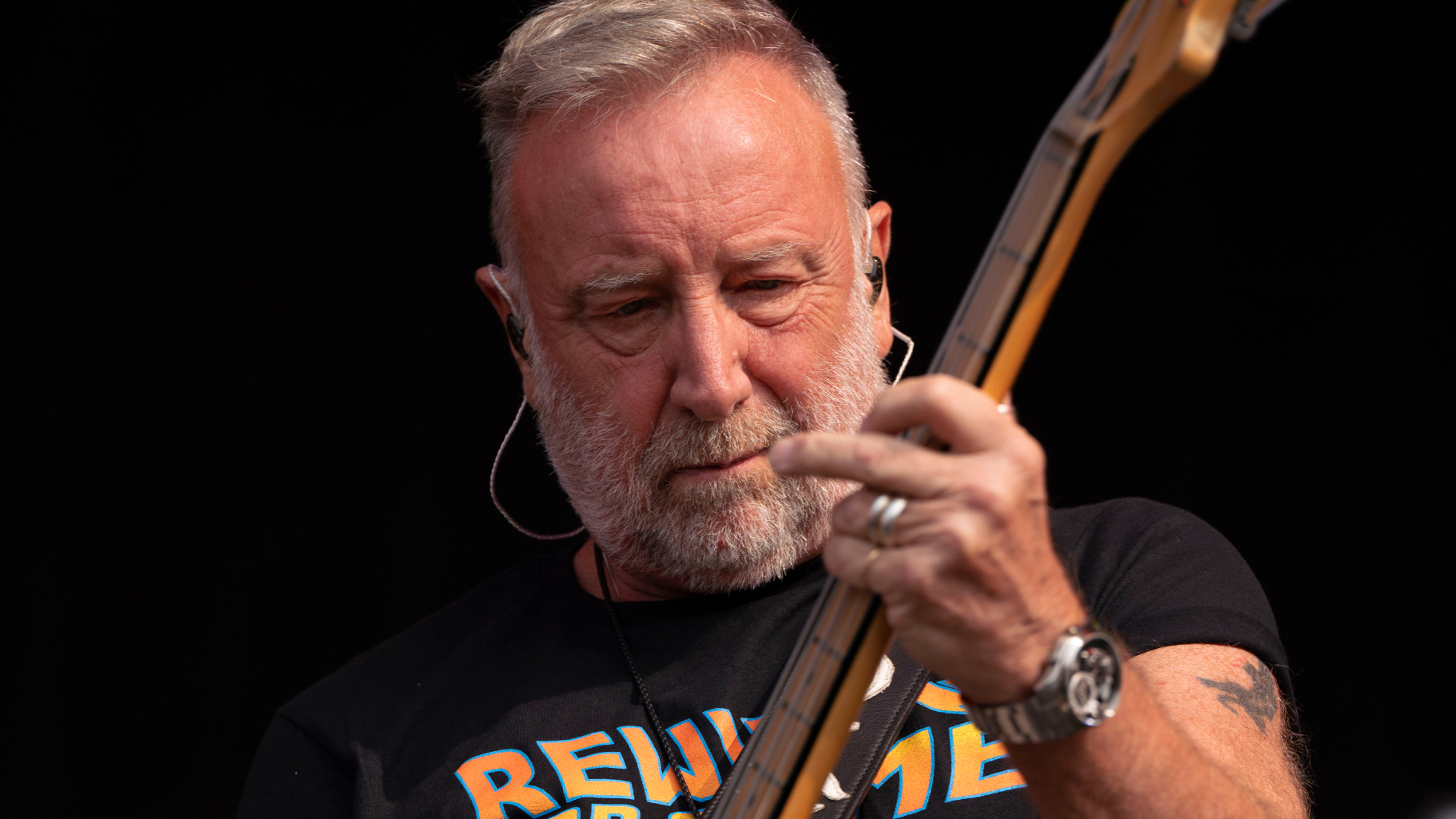Ryan Madora: “I’ve learned mostly by ear: I was the person that sat in the basement for hours and played along to records”
We talk to the session bassist and Robben Ford collaborator

Session and studio bassist and writer Ryan Madora on the importance of making the right choices - and taking care of business.
Your main gig is with bluesman Robben Ford. How did the gig first come about?
“I started working with Robben in the fall of 2017. I knew that he was putting a new band together, and I know the other guys that got the call - I was lucky enough to get recommended by them. I first did a tour with him in late October of 2017, then we did the West Coast in the US, and then we went to China and Japan and played the Blue Note in Tokyo. At the beginning of 2018, he decided that he wanted to do a new record, so we spent the first part of the year working on that. We recorded Purple House here in Nashville, and following that we toured in the USA and Europe.”
What bass gear did you use on Purple House and on tour?
Touring with Robben, I’m using my Mike Lull PJ5 and an Aguilar rig
“Touring with Robben, I’m using my Mike Lull PJ5 and an Aguilar rig. I usually use two Aguilar SL 112 cabs and a Tone Hammer 500. I used a DB 410 live, too. I also have a Lull P-Bass and a couple of Fenders. I consider myself fairly traditional on the tone side of things, so I like the clarity of the Aguilar rig and the fact that I can bring in a little bit of dirt, if I need to, with pedals. I’ve always been a Fender- shaped-object kind of person, and Mike does such a great job - the craftsmanship of his instruments are great, which is why I’ve got three of them.”
What pedals are in the chain?
“I have a lot of Aguilar pedals, because I have a really good relationship with those guys, but with Robben, I’m only using the Agro overdrive, as well as the Tone Hammer DI and a tuner pedal. I don’t really need effects with Robben, other than a little bit of grit and overdrive, but for my session rig, I have a pedalboard that’s tricked out with pretty much all of the Aguilar pedals. I also have an additional Neve preamp that I usually use on recordings.”
Get the MusicRadar Newsletter
Want all the hottest music and gear news, reviews, deals, features and more, direct to your inbox? Sign up here.

Rhythmic roots
How did you first become a bass player?
“Honestly, I started out as a drummer. I was in the school band programme and hated it, and had a lot of high-school nightmares. In the freshman year of band, I quit, and I didn’t want to play drums anymore. I was trying to figure out what else to do. I always listened to a lot of soul, R&B and Motown stuff where the bass was heavy, so I was like, ‘I want to play that’. At the time I was also listening to lots of Nirvana and Chili Peppers - a lot of rock music - and what I was really impressed by was the bass. I convinced my dad to go halfies with me on buying a bass, and the rest is history.”
What was the bass?
I started out as a drummer. I was in the school band programme and hated it, and had a lot of high-school nightmares
“It was a Fender Squier starter pack, where for $300 you get a small amplifier, a Squier P-Bass and an instructional VHS tape. Something clicked. I knew at that point that playing bass was what I wanted to do and that was the right instrument for me. I graduated from that to a Fender Jazz V, which was great. I still have it. It’s a ’98 American Deluxe - a beautiful instrument. That was my first grown-up bass.”
What was your first professional gig?
“I started out going to various jams, playing around clubs in the suburbs of Philadelphia, on the Pennsylvania side that goes into Delaware and then South Jersey. At first the dates that I was doing were mostly blues bands at a bar, with classic rock as well. I didn’t really start playing professionally until after college.”
What did you do at college?
“I went to New York University and I studied Music Business and Communications. I didn’t go to school for a performance degree or anything like that. It was more about the business and the communications, journalism and writing side of things.”
Would you say that subject has been useful over your career?
“It has. One of the best things about college was I got to do a couple of different internships that told me what I did and didn’t want to do in the industry. It gave me the opportunity to rule out the fact that I didn’t want to be a talent buyer, or work at a record label, or anything like that. That’s what officially sent me in the direction of being a professional bass player. The other side of it was that I got to do different classes in journalism and writing, so that I could go in that direction as well. It’s good to have a general business background, just to know the importance of good book- keeping practices and organisational skills.”

Ear training
How did you progress as a bass player?
“It was a very natural instrument for me. I’ve learned mostly by ear: I was the person that sat in the basement for hours and played along to records. It wasn’t until towards the end of high school that I was taking private lessons, just to learn some theory and pass a college audition. When I was at the university, I didn’t take any bass lessons until my senior year, when I ruled out the fact that I didn’t want to do the music business jobs and I wanted to play. And then, when I got out of school, I gave myself a couple of years to move back to Philly, work in different kinds of bands, and practise as much as possible.
“After school, I taught lessons at a music store, and I worked in a couple of different bands. I worked in a cover band doing the casino circuit in Atlantic City and different bar gigs. That was quite an education, because I had to learn a lot of different songs. Between doing that and being part of the blues scene and zydeco scene in the Philly area, then giving myself time to practise, that was probably when I progressed the most.”
Who are your influences on bass?
I’m a fan of music that comes from a particular studio in a very particular place
“James Jamerson is the number one, and also Duck Dunn, because the first records I listened to that I really wanted to learn how to play were Albert King records. I was always a huge Beatles fan too, so Paul McCartney is high on my list because his bass-lines are so interesting and quite inventive - they’re also somewhat unconventional. When I started digging in that little bit more, I managed to discover Willie Weeks, Joe Osborn and Carol Kaye. I’m a fan of music that comes from a particular studio in a very particular place.”
Which studios do you have in mind?
“If you think about the Southern Soul studios, you’ve got Muscle Shoals down south in Alabama, where David Hood was the primary bass player. Then you have Stax in Memphis, as well as Royal Studios, so you’ve got Leroy Hodges, who worked primarily at Royal Studios, and Duck Dunn, who worked at Stax. There was also Tommy Cogbill, who would go between Memphis and Muscle Shoals and Nashville. And then up in Detroit you had Jamerson and Bob Babbitt, who both did plenty of Motown stuff to boot. Then, when you’re out in LA, you had the Wrecking Crew players, which included Carol Kaye and Joe Osborn and a whole bunch of other different guys. I absolutely adore tracing back the steps and figuring out who did what, at which places and with which groups of people.”
Is there a current studio operating right now that has the same impact in the world of bass?
“That is a good question. In some ways, yes, but it’s dependent upon the producer. At least in Nashville, the scene is very much driven by the producers. There are a handful of studios that are particularly busy, where a lot of people decide to work, and certain producers call their guys and they work at a certain studio. Dave Cobb is one of the producers here in town, and he frequently calls Brian Allen. Dan Auerbach from the Black Keys does a lot of work here, and he will often call Dave Roe. It’s much more producer-based.”
How does life in Nashville suit you?
I love it in Nashville. There are various shifts when you play music here
“I love it. There are various shifts when you play music here. Downtown it’s 2pm to 6pm, 6pm to 10pm, and 10pm to 2am, although I’m not particularly keen on the last one. I also play the Rock And Roll Fantasy Camp here, which is 10am to 10pm. We teach and rehearse with our bands and do masterclasses and stuff like that during the day. Then there are various jam sessions and performances in the evening, so I’m looking forward to that. That will be a lot of fun. It’s also cool to see a lot of other pro players in Nashville that you don’t usually get to work with, but who are also there to teach at the camp.”
You’re also a writer for No Treble.
“Those guys are great. I’ve been writing with them for a long time. They were the first people to say, ‘Why don’t you start writing some pieces for us?’ I really enjoy it, not only because I like the creativity of writing, but because it’s homework. I end up learning as much, or more, from the columns that I write, just in the process of doing it.”
Do you have an agent, or is it all word of mouth, with people contacting you directly with gigs?
“It’s a mixture of word of mouth, networking, meeting people and just doing gigs. Hopefully you do a good enough job that you get recommended for something else, and that leads to someone else. I find that I like handling a lot of things myself. I’m a Type A personality, so I like to know what I’m doing at all times and be in charge of that. If it gets to be too much, then I would love to be able to hire a manager, if I do get to that point. But for now, it’s all me. I’m excited to see what comes next. I’ve got a lot of cool things in the works going on right now, and so I’m keeping the train a-rolling.”


“I’m beyond excited to introduce the next evolution of the MT15”: PRS announces refresh of tube amp lineup with the all-new Archon Classic and a high-gain power-up for the Mark Tremonti lunchbox head
“These guitars travel around the world and they need to be road ready”: Jackson gives Misha Mansoor’s Juggernaut a new lick of paint, an ebony fingerboard and upgrades to stainless steel frets in signature model refresh






![PRS Archon Classic and Mark Tremonti MT 15 v2: the newly redesigned tube amps offer a host of new features and tones, with the Alter Bridge guitarist's new lunchbox head [right] featuring the Overdrive channel from his MT 100 head, and there's a half-power switch, too.](https://cdn.mos.cms.futurecdn.net/FD37q5pRLCQDhCpT8y94Zi.jpg)


